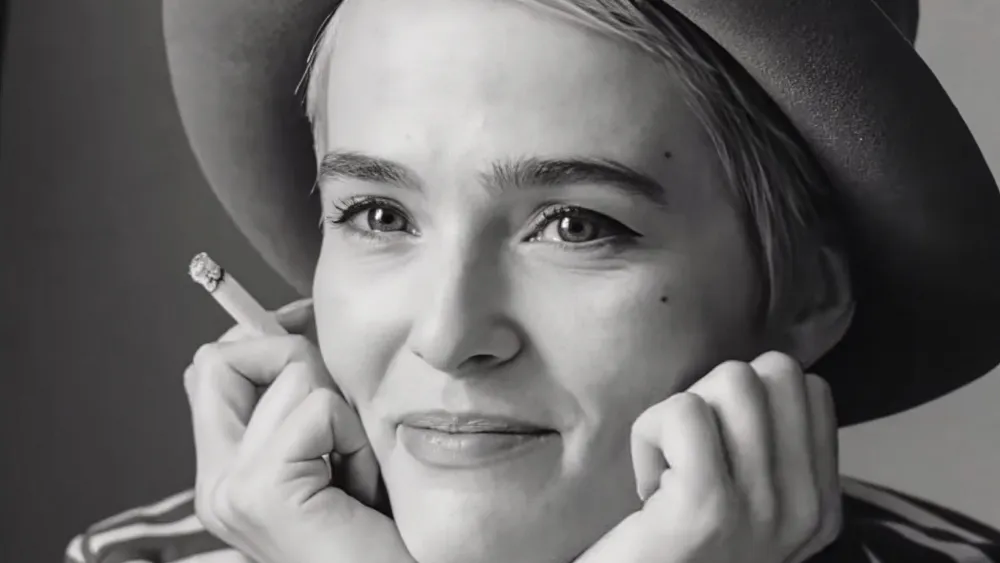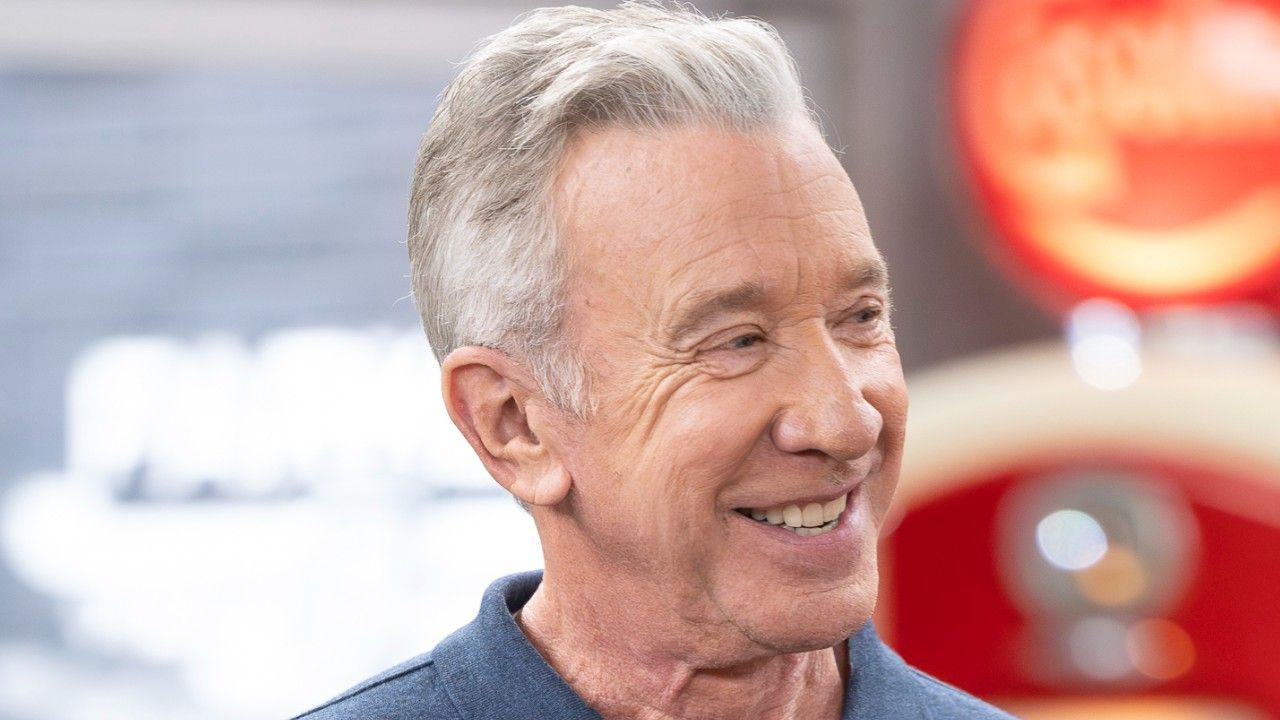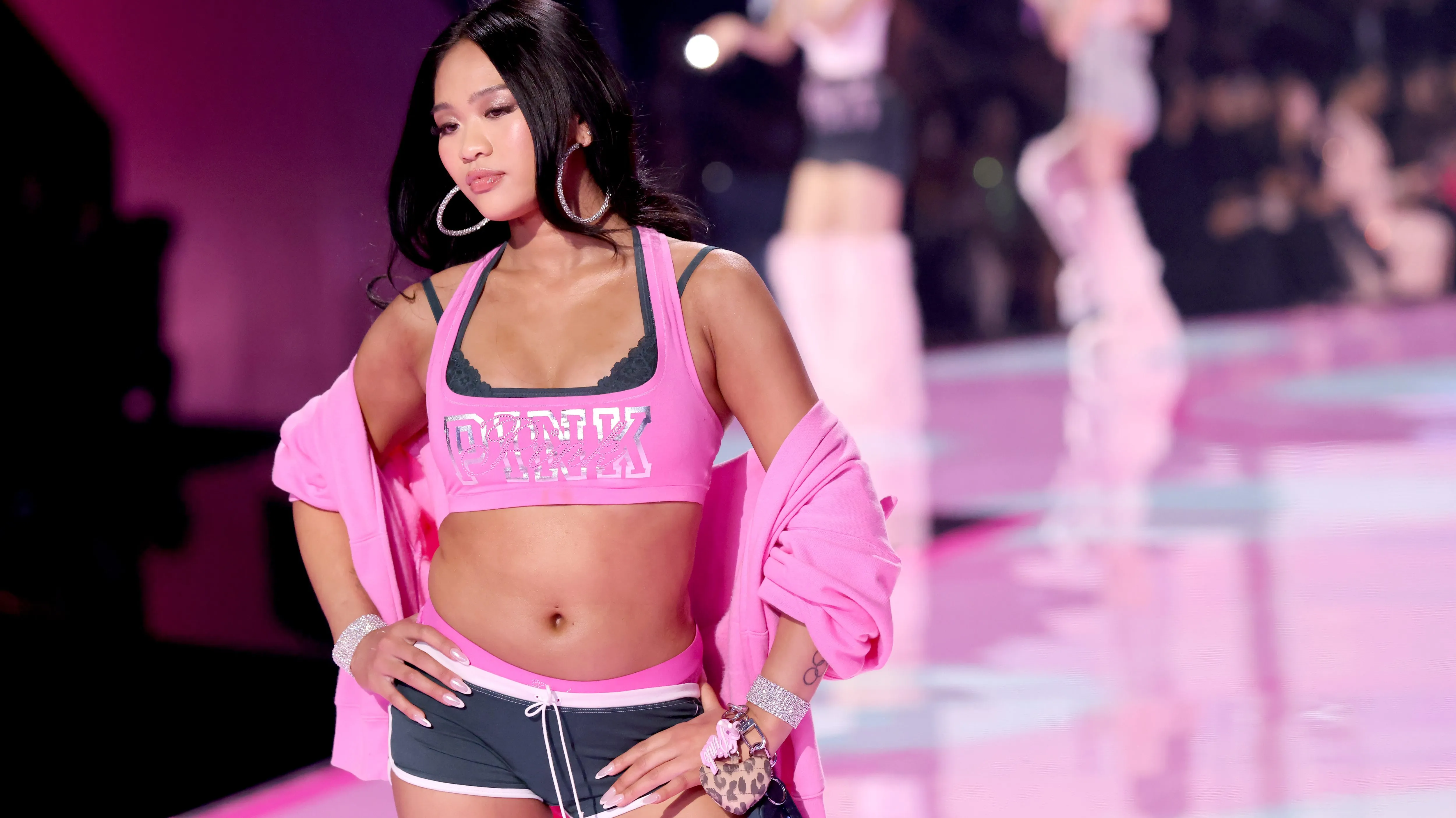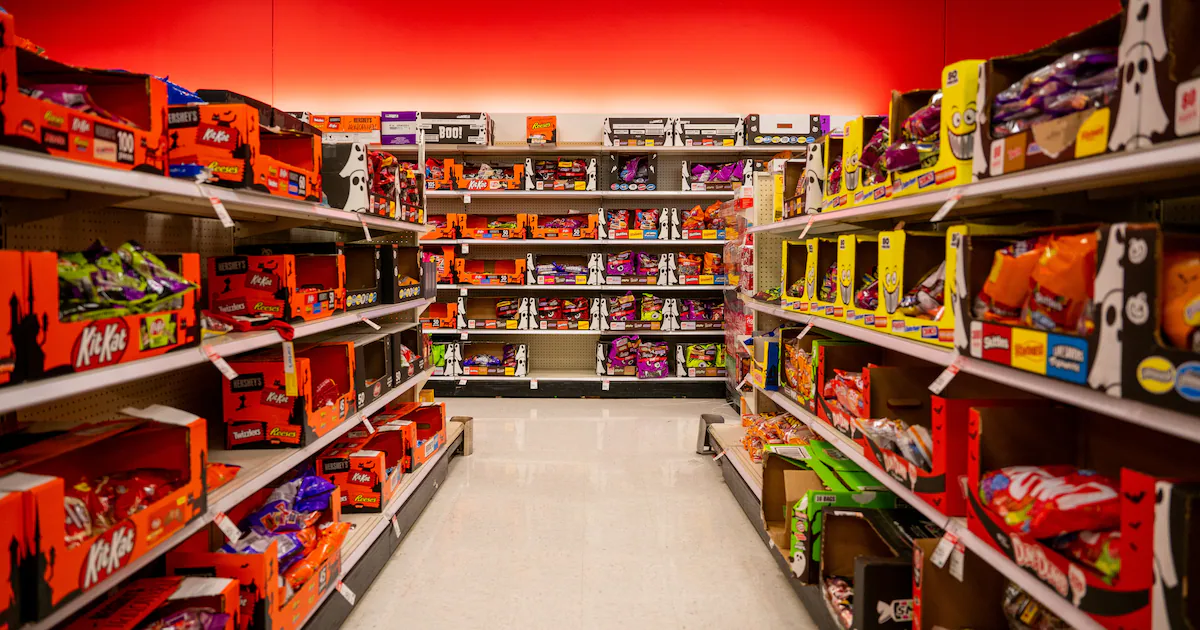Copyright Variety

Zoey Deutch has ideas. They’re sharp, original and delivered with the kind of disarming charm that makes you wonder why Hollywood hasn’t already followed her lead. “Don’t you think there should be a blooper button on comedies?” she asks with a grin. “Watching bloopers is always so much fun, and Netflix has so many great comedies on their platform. I’ve been pitching this idea hard. It just makes sense.” She also has another idea: a gender-swapped remake of ‘The Truman Show,’ with Deutch in the lead. “Isn’t it just the best?” she says, lighting up. “I want to play Truman. I think it would be amazing to explore that story from a different angle.” Her boldness isn’t just theoretical. Deutch’s decade-long journey to her latest role — as Jean Seberg in Richard Linklater’s “Nouvelle Vague” — is proof of an artist willing to wait, study, and evolve. The project, which began as a casual conversation with Linklater on the set of “Everybody Wants Some!!” when she was just 19, has now blossomed into what may be her most transformative performance to date. “I didn’t know how real that was,” she recalls. “But the point is, this movie has lived in Rick’s heart, his mind, and his soul for a long time. So it’s beautiful to see it come to fruition.” Now 30, Deutch fully inhabits the complicated Seberg during the tumultuous filming of Jean-Luc Godard’s revolutionary 1960 masterpiece. The role required her to master multiple dialects — Jean speaking English with “almost like a little bit of an affected Mid-Atlantic thing,” Jean speaking French, and Jean playing Patricia in “Breathless.” It was a linguistic high-wire act that Deutch approached with characteristic dedication, studying French for two years before filming began. The actress describes “Nouvelle Vague” as “such a departure from anything [Linklater’s] ever made,” a sentiment echoed by frequent Linklater collaborator Ethan Hawke, who told the director after watching the film, “My friend didn’t make that. Who made that? Who was that?” Yet Deutch sees a deeper connection between Linklater and Godard despite their vastly different methods. “Godard is this spontaneous, no script, lightning in a bottle director and Rick is just as much rehearsal time as shooting time,” she explains. “But I do think that is the tether between them. Is their artistic integrity, their authenticity, their drive to make what they need to make inside of them.” There’s a renewed passion which is palpable in her performance, as she captures both Seberg’s luminous screen presence and the vulnerability of a young actress navigating the chaotic genius of Godard’s set. The role also allowed Deutch to channel her admiration for classic Hollywood, particularly Katharine Hepburn, whose performances in films like “Bringing Up Baby” and “The Philadelphia Story” altered her DNA as an artist. “I just felt so in love with her and what she was doing,” Deutch says of Hepburn, citing her as a primary inspiration throughout her career. As “Nouvelle Vague” debuts on Netflix, reaching what will likely be the largest audience of her career, Deutch remains remarkably grounded about the industry’s fickleness. Recalling an Ethan Hawke speech about the cyclical nature of fame — “you’re somebody, then you’re nobody, then you’re somebody, then you’re nobody” — she’s adopted a healthier perspective: “If you believe all the bad, then you believe all the good, and if you believe all the good, then you believe all the bad, and then it cancels itself out, and then you can’t believe any of it, and you just know what’s true for you.” Read excerpts below from the upcoming podcast interview, which has been edited and condensed for clarity. Was it challenging speaking the French language and nailing Jean Seberg’s distinct accent? I did not speak a word of French. I started studying about two years before we filmed. I reached out to my dialect coach to see if she had a French tutor. I started working with her preemptively, in the hopes that this movie would actually happen. And then six months prior to that, I had another additional tutor who was our producer, actually, and she also helped me. But to be clear, Jean was not fluent. Jean is from Marshalltown, Iowa. She was learning French while making this movie, while improvising a movie with no script. Her French is very specific, intentional — both the dialect and way that she speaks in the movie, which was a really awesome and welcome challenge. In France, the way she speaks French is very famous. So it was very intimidating. It’s so funny — Americans are more critical of the French than the French. The French are like, “Oh my God, it sounds exactly like her.” And Americans are like, “Doesn’t sound right,” because she was American. So she had that little bit of that Mid-Atlantic thing, with a twinge of the Iowa. Then there was her speaking French, then there was her playing Patricia — however she spoke in “Breathless.” So there were three almost different versions that were really fun to play with, and oftentimes all three in the same scene. Do you think you could have worked with someone like Jean-Luc Godard? Rick is a huge sports guy, which I guess some people are surprised by, but he’s like, would a coach or anybody tell Kobe Bryant, “Hey man, don’t practice. Why don’t you come to the game and see what happens. You’re gonna be great. Just see what happens.” No one would tell an athlete to not prepare, to not train, to not work out, to not study, to not explore every avenue of what could possibly happen. And in the case for actors, you want them to do that. That’s his analogy, and I love it. He kind of calls bullshit on “if you rehearse it too much, it becomes stale.” So what’s the alternative? What is theater then? As an actor, it’s not my job to dictate the process. That’s the director’s vision, and they’re the captain of the ship and they’re the leader. He’s the only director I’ve worked with that brings his actors to the location to rehearse the scenes a month ahead. Could I have worked with Godard? That’s a good question. It depends on what stage of Godard’s life, and it depends on what stage of my life. Am I in this stage of my life now, or if I was Jean’s age? I think now, but when I was Jean’s age — 20, and I was 20 the first time I worked with Rick — no, I could not have done it at 20. I think I would have gone insane. Are you finding the roles you really want to play in Hollywood at the moment? I can’t imagine that there’s anybody that sits across from you and is like, “Yep, I’m getting offered all the parts that I want.” The fantasy that you somehow arrive at a place where that happens does a disservice to any artist. You never arrive, you’re always searching, you’re always looking and hoping and wanting. And it’s awesome. It’s awesome to want and it’s awesome to keep trying and keep going. I have had the great fortune of consistently working and really just continuing to hone in on my craft and alongside figuring out who I am as a human being. I started as a kid, and I am no longer a kid. In my mid-20s, I started producing because there was an element of frustration that I wasn’t getting the parts that I wanted. So it was born out of necessity, not out of anything other than that, and it created this newfound love of a different part of the job that I didn’t expect to fall into — to both create opportunities for myself and people that I love. But I definitely do feel like I’m in a different moment in my career and happy to be reintroduced. What are you looking for next? I just want to work with great directors. There’s no dream role inside — there are so many. But really, I’m out here stalking Yorgos [Lanthimos] and cold emailing directors. I want to do it all. I did a play on Broadway last year, and I got to play one of my dream roles, which was Emily Webb in “Our Town,” and that was a very transformative, deeply important experience in that I felt the weight of doing something that reminds people that has such a worthy and beautiful message. It reminds people to enjoy their life. It triggers people to want to call the people they love and say, “I love you.” That feeling is so deep. Seeking material like that is, of course, something I would like to do, but I’m not sure how much material there is that’s as good as Thornton Wilder’s words. I do have a feeling of wanting to put goodness out into the world, which I don’t feel like I had before. To be honest, I think for many years, my priority was playing very gnarly characters. I accidentally — accidentally on purpose — kept playing these scammer girls. I did “Buffaloed” and “The Outfit” and “Not Okay,” these films where I was playing these quote-unquote unlikable female characters, because I just didn’t want to get pigeonholed. I started in comedy. I didn’t want to get pushed into just the girl part. Now I want to do everything. I just want to work with great directors, and I want to work with people who are so much smarter and more interesting than me, and I want to just be in their orbit and learn from them. Do you subscribe to the notion that “movies are dying?” How could movies be dying? Look at the films and how great they are. I mean, there are so many unbelievable films. Artists adapt. That’s what we do. There are too many great films. You can’t see everything great. It’s not that film is dying—there’s too much great art. It’s the same thing as dating, right? There are so many people who have a difficult time dating, and it’s because there’s so many options. You go on to a dating app and you’re like, ugh. Same thing when you go in to watch a film—there’s so many options; it takes forever to choose. But that’s a different problem than film is dying. Our brains just don’t know how to process that much information. What’s your advice for aspiring actors looking to get into the business? I love the phrase “be ready to be lucky,” meaning do everything you possibly can in your control to prepare, because everything else is out of your control. Whatever that means for you—if it’s watching and studying every movie and going to class and learning different dialects and watching interviews of your heroes and reading—we have so much available and so much information available to us. I think that is of great value, to just take it all in and do as much as you can. It’s alongside manifesting. It’s doing everything that you possibly can to get yourself to a place so that if you ever were to be there, you’re like, “I got this. I can stand on my two feet and go, ‘Yeah, I can do that. Sure. I can try that.'” It’s equipping yourself with as many tools in your toolbox as possible.



